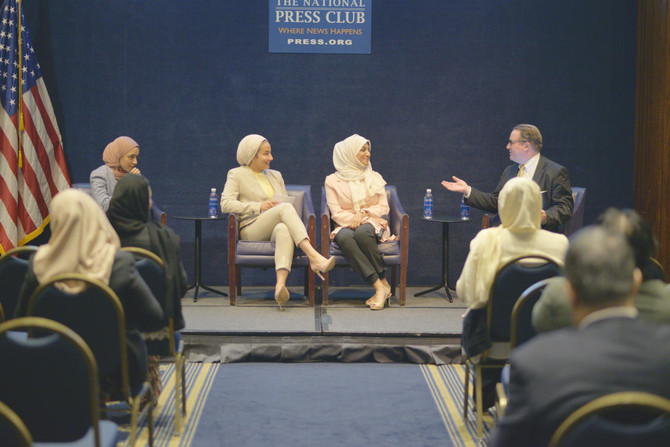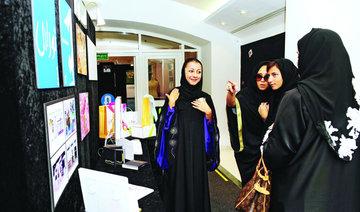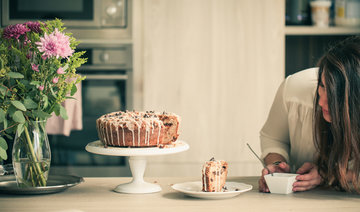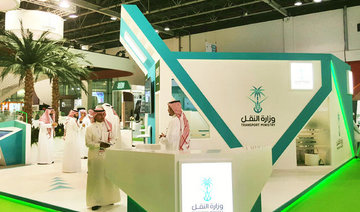WASHINGTON: Saudi women were “just getting started” when it came to taking control of their futures, a meeting of business leaders, entrepreneurs and future policymakers from the Kingdom and Gulf region was told yesterday.
The meeting at the National Press Club in Washington D.C. discussed advances women are making and the challenges they face throughout the Kingdom.
Reem Daffa, vice president and executive director of the Saudi American Public Relation Affairs Committee, which sponsored the event, said: “The message we want to tell the world is very simple: The women of Saudi Arabia are ready to take the driver’s seat.
“Saudi women are experiencing historic social and economic reforms under the leadership of Crown Prince Mohammed bin Salman, and they are about to take Saudi Arabia toward a future of unprecedented prosperity and positive growth, whether it is assuming leadership positions in the government, or becoming job-makers through untapped entrepreneurial potential.
“Quite simply, Saudi women are just getting started.”
Saudi women not only want to assume control of their own futures, the panelists explained, but also are willing to learn from and partner other women who have forged new paths toward economic and social equality. American women are the ideal example of what Saudi women aspire to become, they said.
“I believe every single sector is open to women right now. There are huge steps being taken to get us into the workforce,” said Razan Al-Aqeel, a Saudi delegate at the UN Youth Assembly.
“We are seeing our whole Saudi society come together in unity. Our youth make up more than 70 percent of our population; we are seeing a transition that we’ve never seen before,” she said. “It has become an economic necessity for women to get into the Saudi workforce.
“We are empowered by our past. So where do I hope to see the Kingdom in the future? I hope Saudi youths’ voices expand around the world, so people can see the real us.”
Competent and assertive
Dr. Nadia Al-Tamimi, who heads the psychology department at King Fahad Medical City in Riyadh, told Arab News: “We are here because we want to show that Saudi women are educated and can present themselves in a way that is competent and assertive ... a woman knowing what she wants, what she wants to reach, that she knows her way, that she is in control.”
Crown Prince Mohammed bin Salman is the engine behind these changes, the panelists agreed.
“He has made a huge difference, said Al–Tamimi.
“He has confidence in us as Saudi women and has given us the green light professionally. He makes us feel that the sky is the limit, and he knows that we will not disappoint him.”
“I am amazed that I’m a speaker for women’s roles today,” said panelist Al-Aqeel.
“I will be 33 by 2030, so what I’m going to do in 10 or 12 years, especially with the support of the crown prince and the government, is exhilarating.”
Despite the crown prince’s support, Asma Al-Kusayer, a doctoral candidate in clinical psychology, acknowledged that some segments of society in the Kingdom had misgivings about the decisiveness they are seeing in younger Saudi women.
“What is it like if you’re a conservative man in our society?” asked Al-Kusayer. “We are not here to challenge you, we’re here to help you and our society.”
Changing Americans’ attitudes was also on her agenda.
“My message to Americans is that just as Americans are diverse and different, it’s the same in Saudi Arabia. For me, often I’m the first Muslim that many Americans have met and I hope to change the stereotypes that some people have about my country and our people.”
Stepping into the global spotlight as a Saudi woman has not been difficult, said Al-Aqeel. “I always say that I am a ‘glo-cal’ person, I am both a global citizen and a local Saudi woman.
“My advice to Saudi women? Be consistent in your dreams.”
“Don’t be afraid to ask for help and support in our society — your parents, your teacher, your mentor; whoever your role models are, whatever you aspire to do, don’t stop,” she said.
“The road is never easy, but the journey is part of the experience. Don’t stop following your dreams.”
“Each one of us has to be part of Vision 2030,” said Alyaa Mohammad Malibari.
“Don’t get caught up in social media, this does not define who we are. Small things matter. Every small deed you do in the world matters. Do something you like and you love, and you will be empowered by yourself,” she said.




























